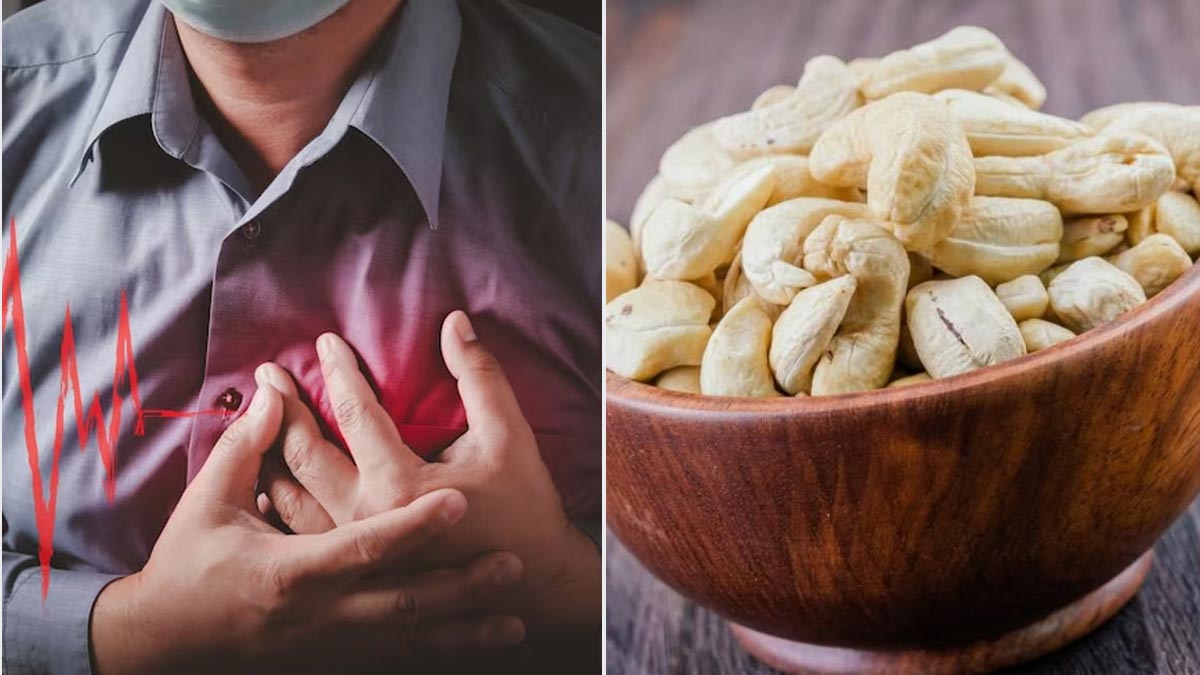
Cashew nuts are a popular snack loved for their creamy texture and rich taste. They are packed with vitamins, minerals, and healthy fats, making them a great choice for heart health, strong bones, and glowing skin. However, there are many myths about cashew nuts, especially when it comes to cholesterol. Some people believe that eating cashews can raise cholesterol levels and harm your heart. To clear up these doubts, we spoke to nutrition experts who explain the truth about cashew nuts, cholesterol, and their possible side effects.
To address the common myth, we asked Sakshi Singh, Nutritionist, Dietetic Place, Lucknow, about whether cashew nuts really raise cholesterol. According to the expert, this is a misunderstanding. “Cashew nuts do not increase your cholesterol if eaten in moderation. In fact, they contain healthy fats that can actually help lower bad cholesterol (LDL) and increase good cholesterol (HDL),” she says.
Cashews are rich in monounsaturated and polyunsaturated fats, which are known to support heart health. These fats are different from the saturated and trans fats that can raise cholesterol levels. Singh adds, “If you eat a handful of unsalted, unroasted cashews as part of a balanced diet, they are unlikely to harm your cholesterol. The real problem comes when people eat them in excess or choose cashews that are fried or salted.”
A study published in the journal Nutrients found that daily consumption of cashew nuts did not increase LDL cholesterol and might even have a positive effect on heart health. People who ate cashews instead of snacks like chips had lower total cholesterol and bad cholesterol (LDL). Their bad cholesterol dropped by almost 5%, while people eating chips saw no improvement. Good cholesterol (HDL) stayed the same.
ALSO READ: How Much Matcha is Too Much Matcha: Expert Explains Its Side Effects
Top Stories
While cashews are healthy, eating too many can cause problems. Anupama Menon, Certified Nutritionist and Lifestyle Coach from Bengaluru and Mumbai, explains, “Cashews are nutrient-dense and energy-rich, primarily due to their fat content. A 1-ounce (28-gram) serving of cashews contains around 157 calories. These calories mainly come from healthy fats, particularly monounsaturated and polyunsaturated fats, which contribute to heart health and provide sustained energy.”
Here are some side effects to watch out for if you eat too many cashews:
Cashews are high in calories. Eating large amounts regularly can lead to weight gain, especially if you don’t balance them with physical activity.
Cashews are rich in dietary fibre. While fibre is good for digestion, eating too many cashews at once can cause bloating, gas, or even diarrhoea, especially if your body isn’t used to high-fibre foods.
Some people are allergic to cashews. Allergic reactions can range from mild itching and hives to severe symptoms like difficulty breathing. If you suspect an allergy, avoid cashews and seek medical help.
ALSO READ: Is Dal Really A Good Source Of Protein? Here's What Nutritionist Suggests
Cashew nuts are a healthy and tasty snack when eaten in moderation. The myth that cashews raise cholesterol is not true, as they actually contain fats that are good for your heart. However, it’s important not to overeat them, as they are high in calories and can cause digestive issues or allergic reactions in some people. Stick to a small handful per day and choose unsalted, unroasted cashews for the best health benefits. Always listen to your body and consult a nutritionist if you have concerns.














